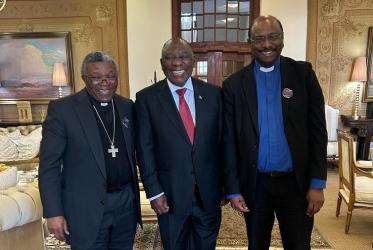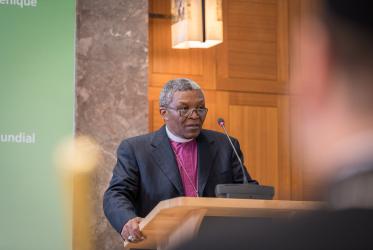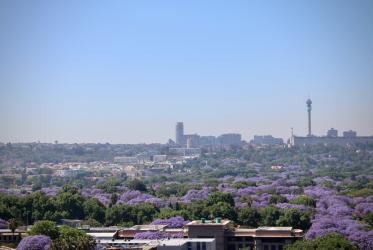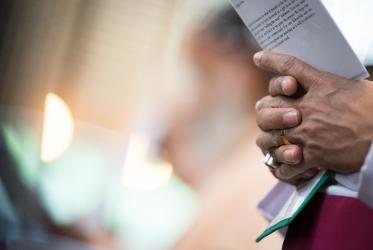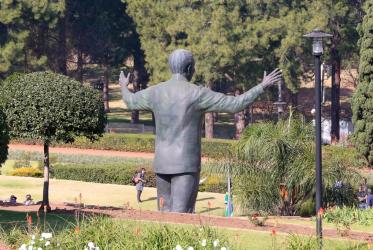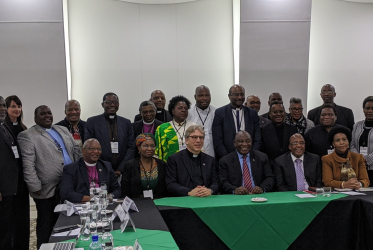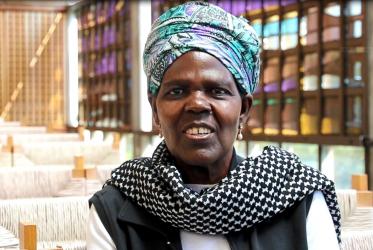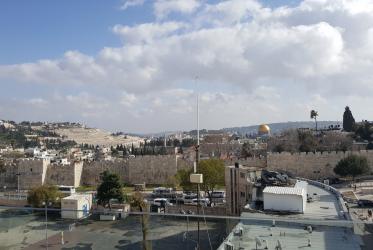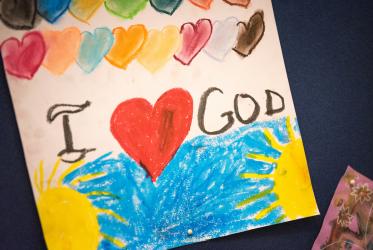Displaying 1 - 20 of 79
WCC delegation meets with South African President Ramaphosa
09 December 2019
Churches in southern Africa stand against violence, xenophobia
10 October 2019
WCC well-represented in Religions for Peace leadership
07 October 2019
WCC moderator “A call for equality in God’s house”
08 April 2019
“Empower our pilgrimage through love”
07 November 2018
WCC supports UN petition from French Polynesia
07 November 2018
A vibrant movement ready for tomorrow’s challenges
04 November 2018
